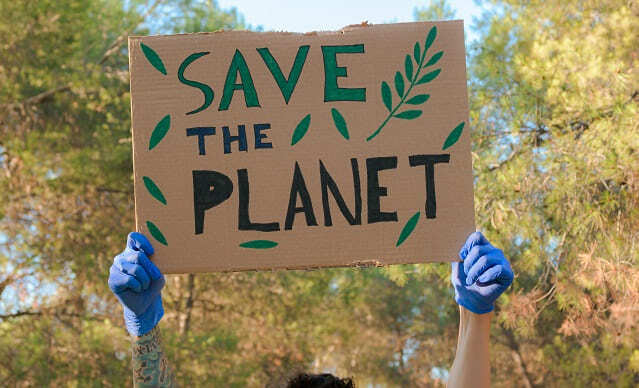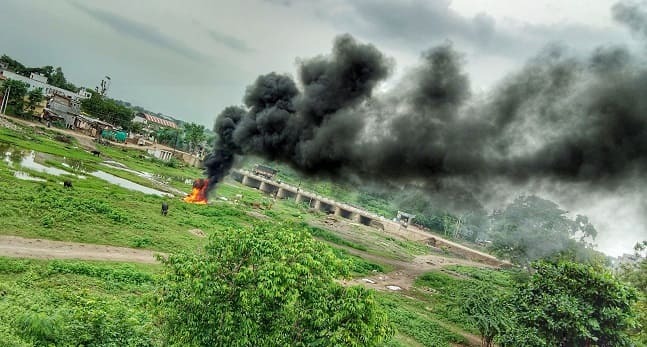
 Data Structure
Data Structure Networking
Networking RDBMS
RDBMS Operating System
Operating System Java
Java MS Excel
MS Excel iOS
iOS HTML
HTML CSS
CSS Android
Android Python
Python C Programming
C Programming C++
C++ C#
C# MongoDB
MongoDB MySQL
MySQL Javascript
Javascript PHP
PHP
- Selected Reading
- UPSC IAS Exams Notes
- Developer's Best Practices
- Questions and Answers
- Effective Resume Writing
- HR Interview Questions
- Computer Glossary
- Who is Who
What is the full form of CPCB?
Introduction
Central Pollution Control Board (CPCB) is a statutory body under Environment, Forest and Climate Change Ministry.

The goal of the CPCB is to promote clean water bodies across the country, and implement pollution control measures. The organization deals with State Pollution Contol Boards (SPCBs) and various industries across the country.
Establishment of CPCB
The CPCB was established in September 1974 under the Water (Prevention and Control of Pollution) Act, 1974. It was set up to provide technical services to the Environment,n Forest and Climate Change Ministry. The CPCB also governs various responsibilities which comes under the Air (Prevention and Control of Pollution) Act, 1981.
Functions and Responsibilities of CPCB
The CPCB governs several functions and responsibilites to check pollution across the country. Some of the major functions of the organization are
The CPCB sets and enforces standards for water and air quality, noise levels, and hazardous waste management across the country.
It monitors and analyzes pollution levels in various parts of the country on a regular basis. It also maintains a database of pollution levels and trends.
The organization also conducts research and development activities related to pollution control and prevention. It also promotes research in the field of environmental studies.
The organization works with state pollution control boards, other government agencies, and non-governmental organizations to implement pollution control measures.
It has the power to take legal action against industries and individuals who violate pollution control laws. It also creates awareness among the public about the harmful effects of pollution and measures that can be taken to prevent it.
The CPCB cooperates with international organizations and other countries to address issues related to transboundary pollution.
Organization Structure of CPCB
The CPCB has a well-defined organizational structure that enables it to carry out its functions effectively. The CPCB is head by the chairman, who is appointed by the Central Government. The Member Secretary is the Chief executive officer of CPCB and is responsible for the overall functioning of the board.
Headquarters of CPCB is present in New Delhi, where the Chairman and Member Secretary are based. It has five regional offices located in Kolkata, Lucknow, Bhopal, Bengaluru, and Vadodara. These regional offices are responsible for implementing pollution control measues in their respective regions.
The CPCB has several laboratories located across the country that are responsible for setting pollution control standards, monitoring pollution levels, and conducting research on pollution control measures. Enforcement Divisions of CPCB are responsible for enforcing pollution contol laws and taking legal action against polluters. This well- structured organization enables the CPCB to carry out its functions effectively and efficiently.
Achievements and Initiatives of CPCB
The CPCB has achieved several significant milestones since its establishment in 1974. Some of the responsibilities of the CPCB consist of checking sector-specific standards, conducting inspection of more than 5,000 industries, conducting studies of water bodies which resulted in the origin of the Ganga Mission, and forming a wide monitoring network and data management to enhance public dissemination and awareness.

Various initiatives have been taken by CPCB to prevent and control pollution in the county. Some of the initiatives taken by the organization include
National Clean Air Programme or NCAP is a strategical plan to check increasing air pollution in the country. It costs a total of Rs 637 crore.
National Air Quality Index (NAQI) was launched in 2014 by CPCB to monitor and disseminate real-time air quality data across the country.
Swachh Bharat Mission aims to make India clean and free from open defecation, litter, and pollution. CPCB is actively involved in this mission.
National Green Tribunal (NGT) is being provided technical support by CPCB. NGT is an independent judicial body established to hear environmental cases and enforce environmental laws.
The CPCB has set up State Pollution Control Committies (SPCCs) in each state to implement pollution control measures and ensure compliance with environmental regulations.
Conclusion
In conclusion, the Central Pollution Control Board is a working body for the prevention and control of water and air pollution in India. The board provides technical services to the Environment, Forest and Climate Change Ministry. It is also responsible for training individuals for creating awareness across the country. The CPCB's efforts have been instrumental in reducing pollution levels in the country and promoting sustainable development.
FAQs
Q1. What do you mean by PUC?
Ans: PUC or pollution under control certificate is defined as a certificate which indicates that the vehicle meets emission and pollution norms set by CPCB. After a year of registration, a vehicle must have a valid PUC which should be issued every six months.
Q2. When is an industry identified under GPI category?
Ans: An industry is identified under GPI category only under three conditions. One, when the industry is dealing with hazardous substances and discharging the effluents in water. Second, when the industry is discharging effluents with a BOD load of 100 kg per day into water. Third, when both the conditions are present.
Q3. What steps have been implemented by CPCB to control pollution by vehicles?
Ans: Many steps have been taken by CPCB to control vehicular pollution. One of the many steps is improving the fuel quality by eliminating lead from fuel. Eliminating grossly polluting vehicles has also helps control pollution. Introducing alternate fuelled vehicles such as CNG/LPG and electric vehicles is a crucial step implemented by CPCB.

